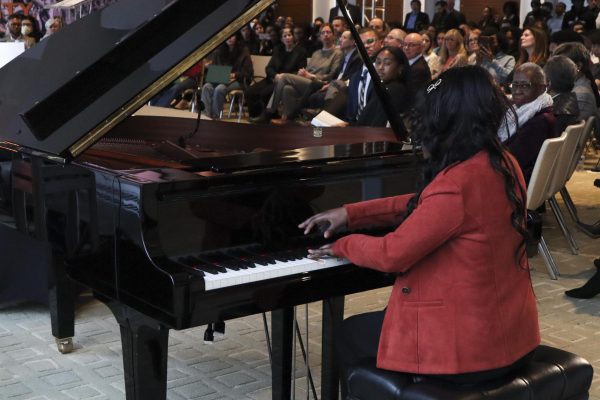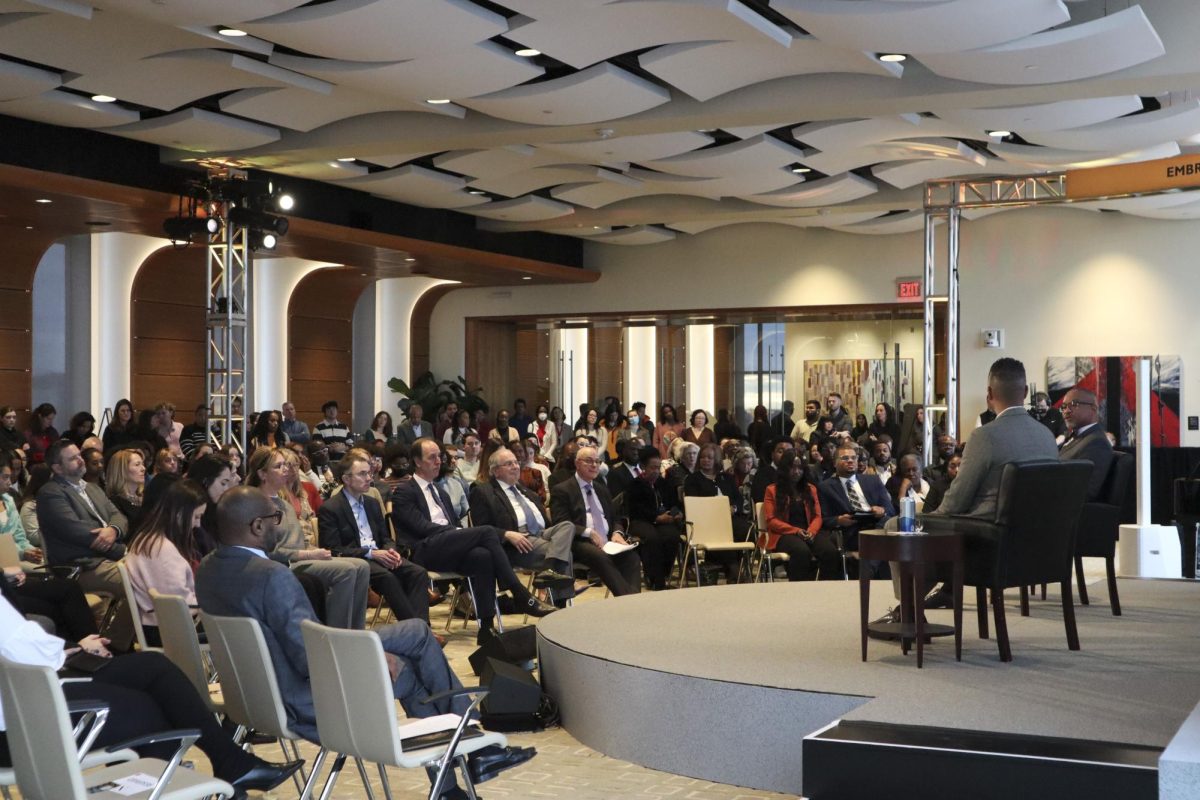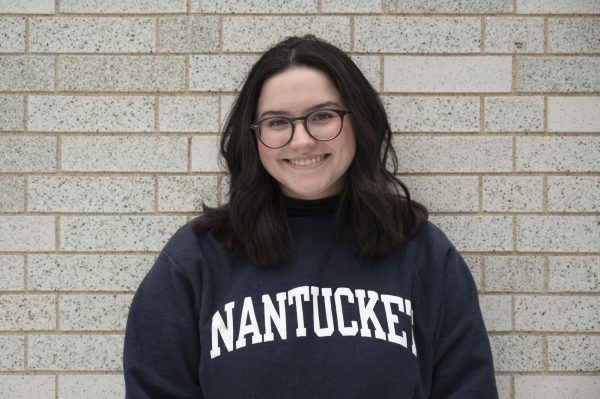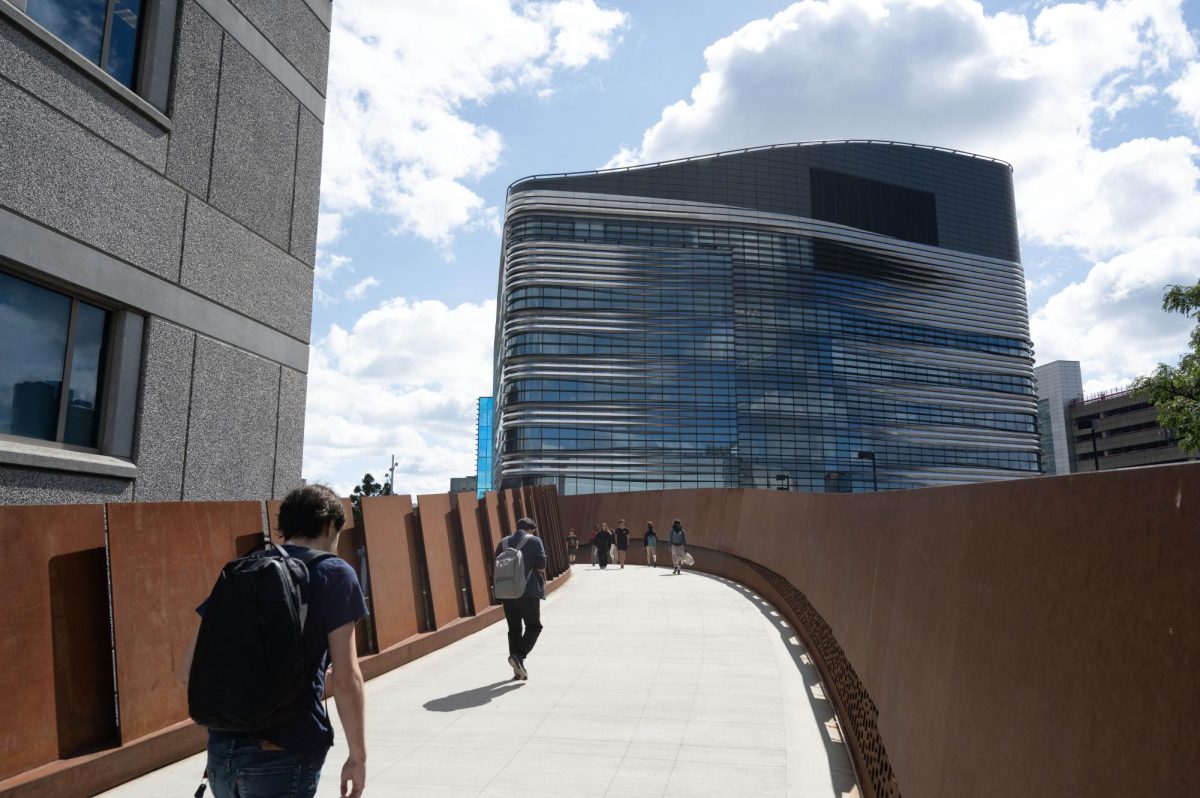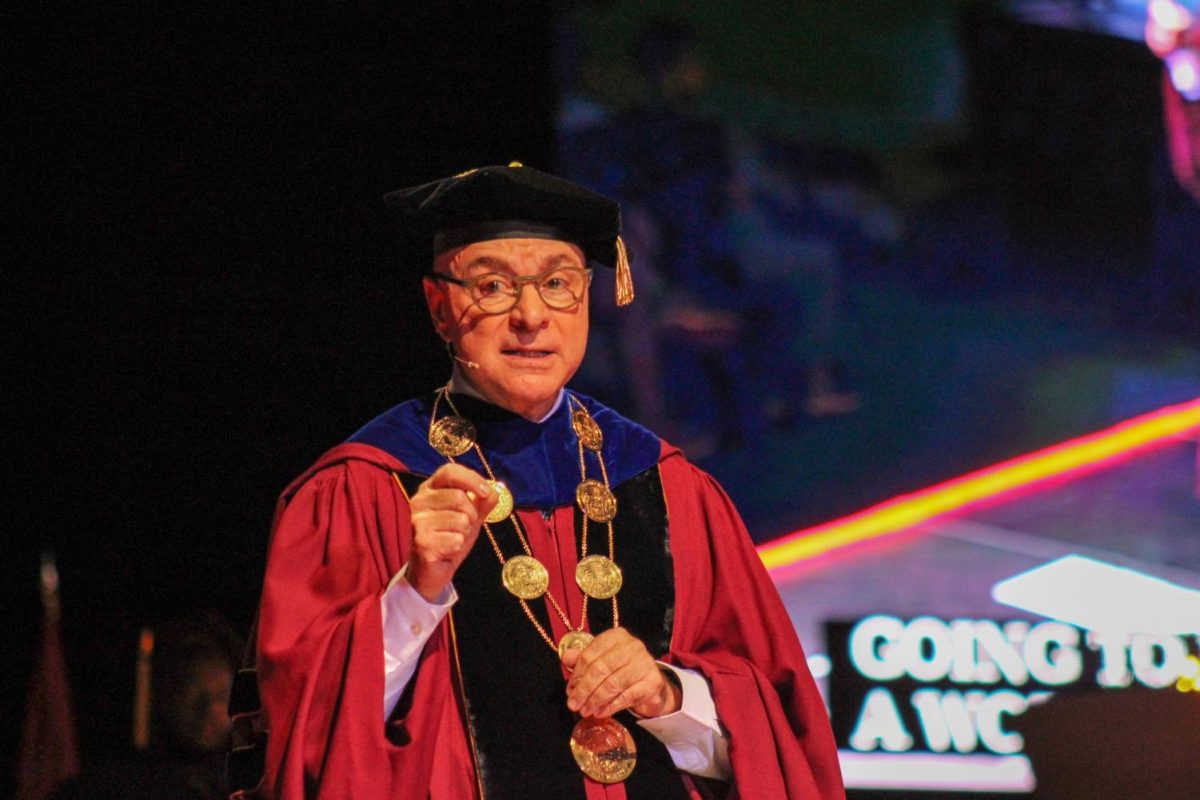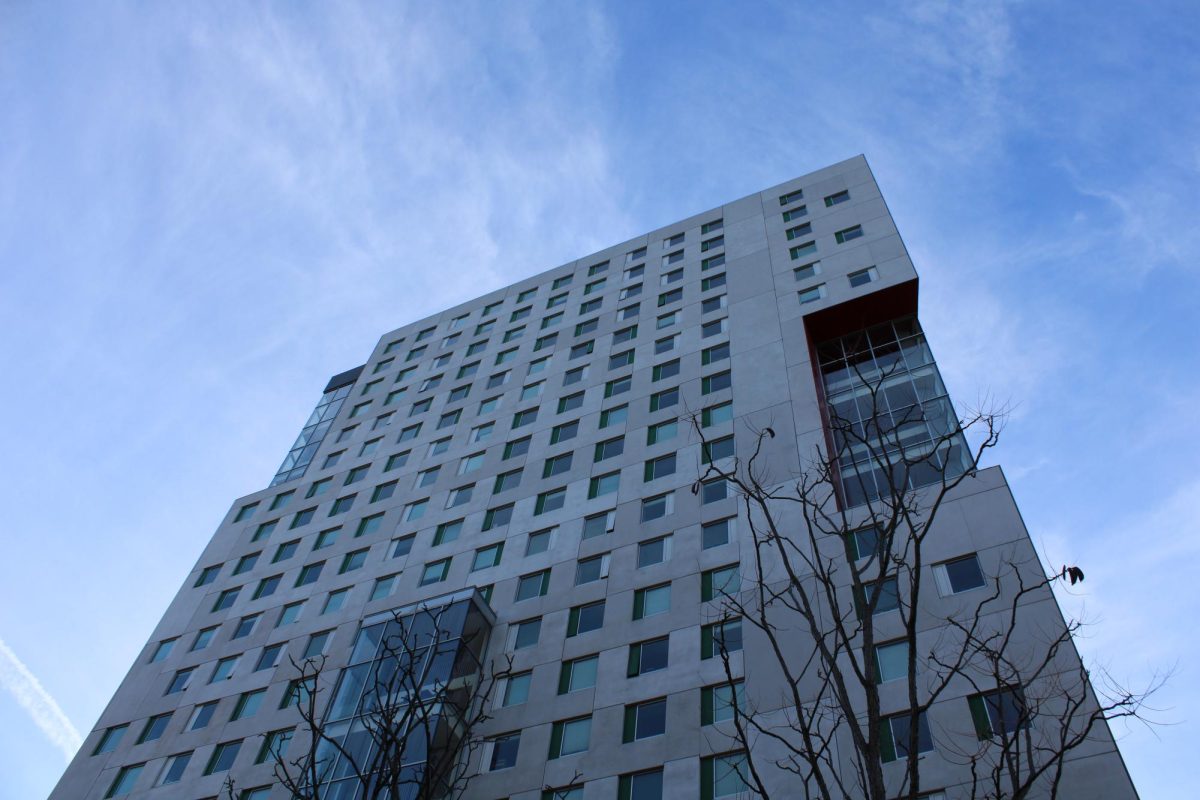On the afternoon of Jan. 11, the Northeastern community gathered to reflect and celebrate the life and legacy of Martin Luther King Jr. during the university’s annual commemoration of King with an event titled “A Tribute to the Dream.”
Lively chatter encompassed the top floor of East Village as faculty and students congregated for the event, which took place at 3 p.m. on the 17th floor of the building and was live-streamed to the university’s global campuses. Posters presenting information on the Embrace Memorial, a statue in Boston Common that was unveiled last January and Charlotte Mathews-Nelson, the program coordinator for the School of Law’s Center for Law, Equity and Race, stood at the entrance of the room. Music from Black artists, as well as songs that historically commemorate peace, love and justice, reverberated through the space.
This year’s event featured a discussion with President and CEO of Embrace Boston Imari K. Paris Jeffries moderated by Northeastern’s Associate Dean of Diversity, Equity, and Inclusion, Richard Harris. The conversation emphasized the mission and vision of Embrace Boston, a local organization that aims to “dismantle structural racism” through transforming arts, culture and public policy and is behind the “Embrace” statue, according to its website.
Shaleeca Joseph, a senior at the John D. O’Bryant School of Mathematics and Science in Roxbury, gave two musical performances, and Mathews-Nelson was honored for 45 years of service at the university.
Gregory Hollis, a graduate student in Northeastern’s the physician assistant program, emceed the event, which began with a piano performance from Joseph. Following her piece, Jeffries and Harris began their discussion, emphasizing the potential that Boston’s young population has for expanding inclusivity efforts, as well as the development and reception of The Embrace memorial.
“We really need to do a better job as a city welcoming folks when they come to the city, especially as the fourth-largest college town — 375,000 people come to Massachusetts to learn,” Jeffries said, speaking on the importance of the university as an institution of education.
Jeffries continued by discussing the notion that collegiate institutions hold power in terms of shaping adaptable and open minds.
“Institutions like Northeastern matter, and I think we are in an important place,” Jeffries said. “The Kings, both Martin and Coretta as we know, met as college students … the university is the hub of learning, it is the hub of democracy in our society.”
Praising the efforts of Northeastern, Harris noted the university’s emphasis on global inclusion in the educational experience.
“We know the legacy of Northeastern University, [which was founded in] 1898, focused on supporting and providing opportunities and access for the immigrant community,” Harris said. “Many institutions wouldn’t accept them, didn’t see them as valued in terms of what the opportunity meant for higher education.”
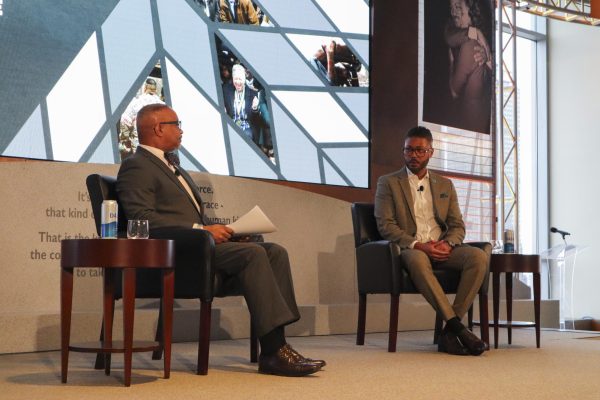
The conversation continued with recognition of The Embrace and the importance of memorials.
“We are in the moment where we need to build more monuments based on love,” Jeffries said. “More rituals built on love, more moments where we can share love.”
Jeffries dove into the symbolism of and the community involvement in creating The Embrace, noting the project was a “community process.”
Embrace Boston held 25 community meetings to discuss possible ideas for the monument, Jeffries said, with 126 people submitting full proposals. Five final designs were selected, and accessible voting stations were set up across the city in public libraries, Boston City Hall and select post offices.
Jeffries emphasized the inclusivity efforts taken by those creating The Embrace, recognizing the statue as the “most accessible monument in the country.”
This accessibility includes access to several language translations, as well as scale modeling for those who are visually impaired.
In addition to inclusivity for those with difficulties accessing the memorial, Jeffries emphasized the desire to include those who worked behind the scenes in the Civil Rights Movement in its development as well. This culminated in the creation of the base of the memorial, known as the 1965 Freedom Plaza, which displays the names of 69 activists from 1950 to 1975.
“Hidden figures who did the work and didn’t get the credit, [who] literally held us together, and Mrs. King was both an essential worker and a hidden figure,” Jeffries said. “And how dare we not include her in a monument to honor the King family legacy… I personally have never seen Dr. King speak live, but I have seen Mrs. King speak live, I have seen Mrs. King in person, and so the King legacy, like many of us, was through Mrs. King.”
Additionally, a video highlighting the work of Martin Luther King Fellow and Northeastern mechanical engineering graduate student Isaiah Simpson segued into Mathews-Nelson’s recognition.
First-year media and screen studies and journalism combined major Jaela Eaton introduced Mathews-Nelson, who described her as a “fierce leader and advocate of civil rights, grounded in the core tenets of the NAACP.”
Mathews-Nelson is approaching 45 years of being involved at Northeastern, during which she impacted the community as an undergraduate student and in various leadership positions. Throughout her time with the school, Mathews-Nelson has served as president of Northeastern’s Black Faculty and Staff Association and has worked on the Commission on the Status of Women at Northeastern and the Affirmative Action Council.
Outside of Northeastern, she served on the Greater Boston Civil Rights Coalition, the Governor’s Task Force on Hate Crimes and the Attorney General’s Advisory Committee on Youth and Urban Violence.
“I’m not always speechless, and also very emotional, but I’ve just been listening to how I’ve been so fortunate, perhaps by design, to do what was put in my hands to do,” Mathews-Nelson said. “Coming from a family of 11 children and a deep, deep segregated South, I just marvel at how I have been so blessed.”
Mathews-Nelson concluded her acceptance by saying she was humbled by the recognition and hoped it served as a reminder “especially to the young people in the room” that they can “do this if [they have] a heart and a soul and a mind of service.”
The event closed with an original piano piece from Joseph, followed by remarks from President Joseph E. Aoun. Aoun reflected on Northeastern’s effort to honor King’s legacy through inclusivity efforts.
“Radical inclusion, let’s work on it all together,” Aoun said.
